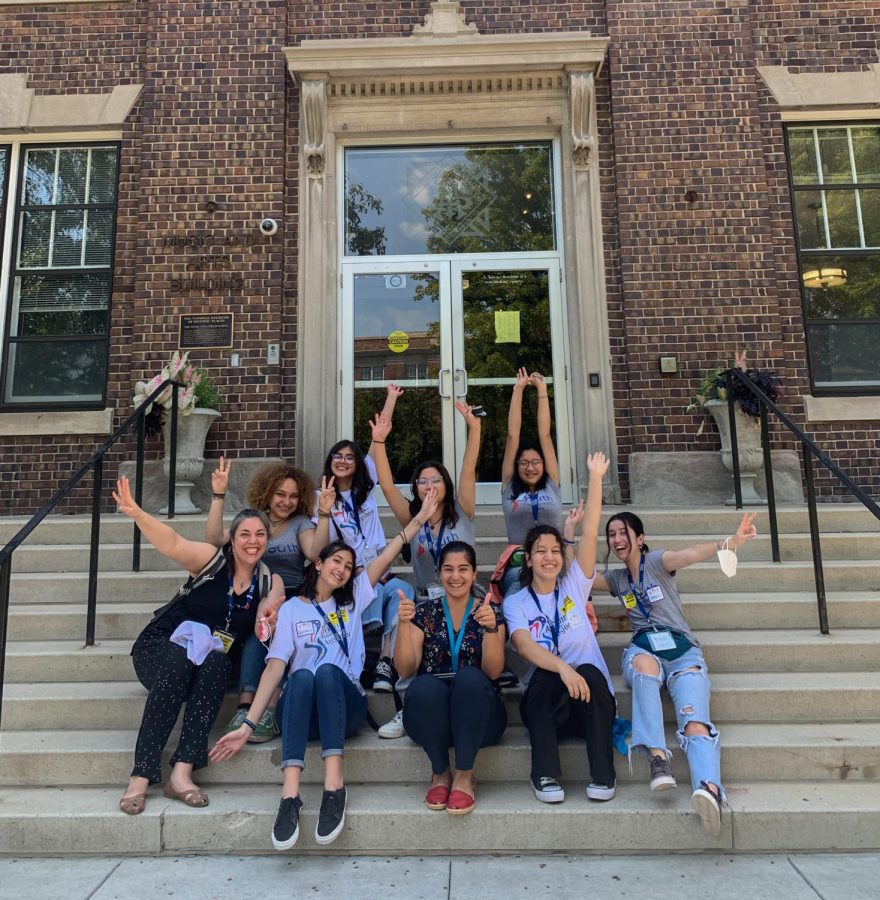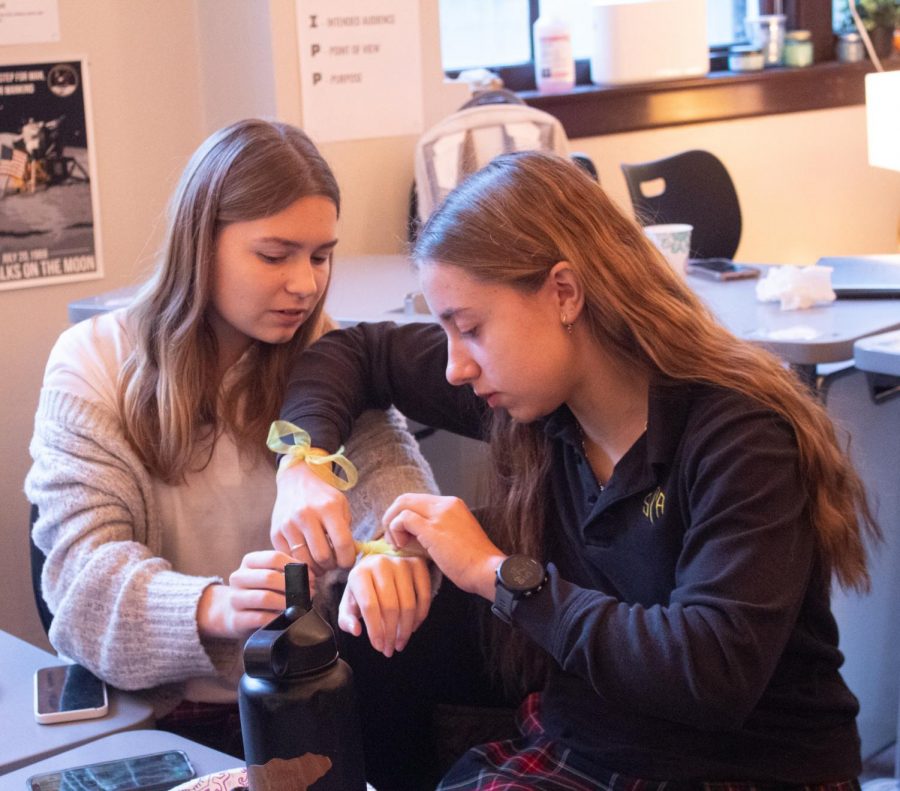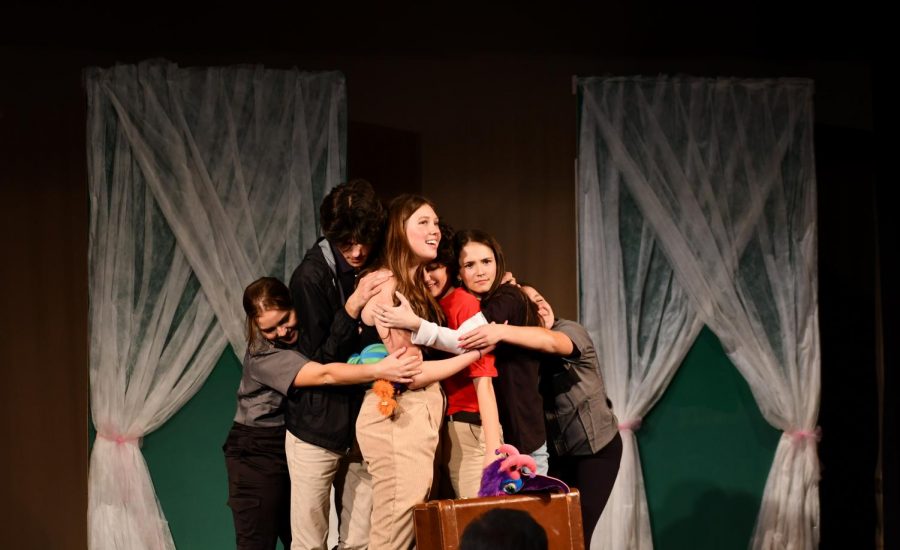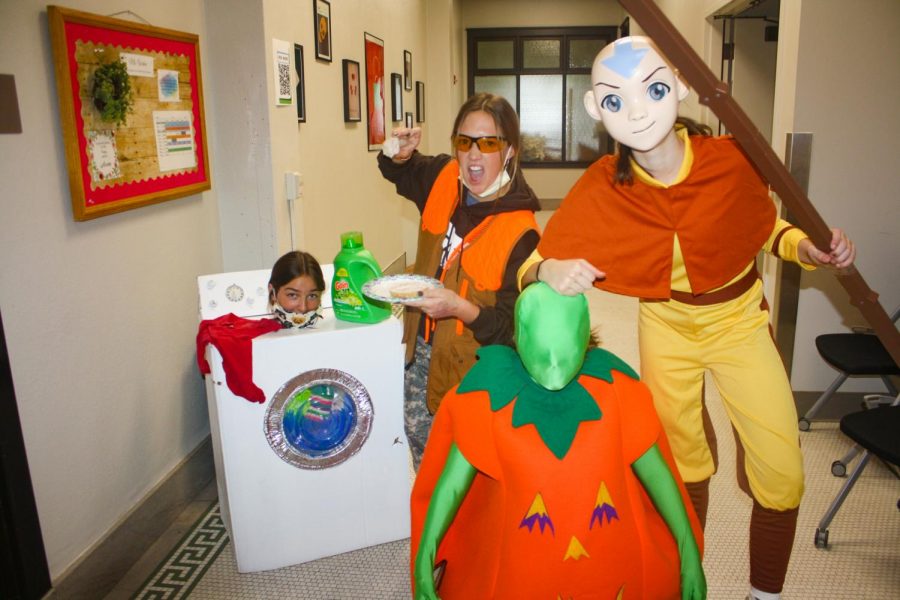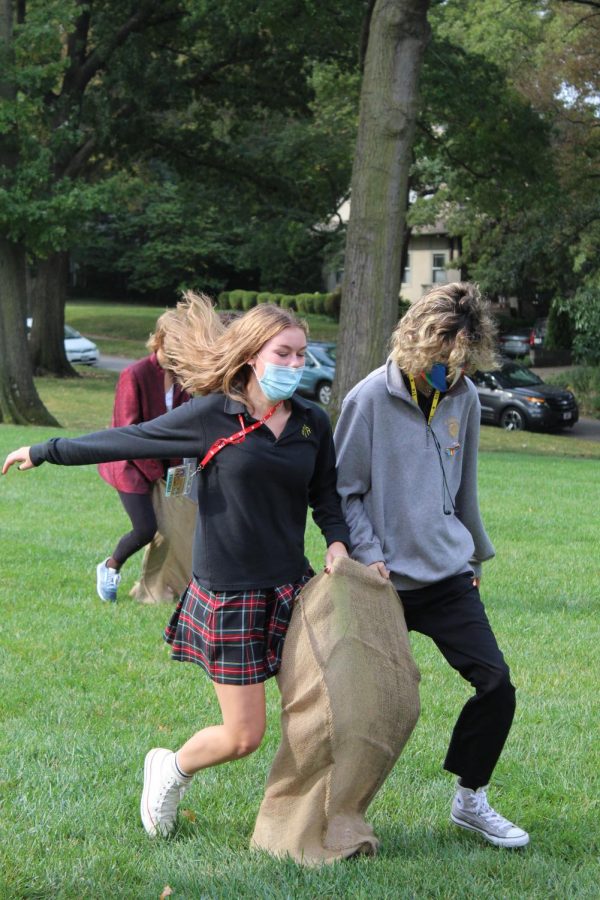The top two administrators at STA admit their school has a hidden problem with cheating. They acknowledge students write answers on their body parts. They know students provide other students answers to exams. They hear of students using cheat sheets. They realize students look at other students’ tests. They understand students copy one another’s homework assignments. They talk to students who plagiarize. And they discipline students writing formulas on calculators.
But are some of these things really cheating? Or, as some students believe, are students just being resourceful?
As a college preparatory school, some girls feel pressure to cheat in order to achieve. At a school with tuition and fees over $10,000 per year, parents reprimand their daughters for their grades, mentioning how much money has been spent on their education.
And with the label of ‘college preparatory’Â comes a rigorous workload. Daily, the stress and pressures can cause students to cheat. In fact, some of this cheating has become so habitual that students no longer recognize their behavior as cheating.
But as a Catholic school, STA teaches a Christian moral code. Theology classes like morality and Christian lifestyles teach lessons contrary to trading answers in the bathroom on the second floor during passing period.
But the question remains: Is cheating a real problem at STA?
‘I don’t want to say [it is a problem], but I honestly think it is,’Â junior Sophia Garozzo said. ‘From tiny little things to big things like big, huge final exams, people cheat every single day.’Â
Why they cheat
Principal for student affairs Mary Anne Hoecker says cheating is happening in the school, and especially on homework.
‘It’s become a habit, a way of life,’Â Hoecker said.
Hoecker believes students cheat for a variety of reasons.
‘For some [students], they didn’t question it,’Â Hoecker said. ‘Some of them panic, they haven’t had enough study time, they’re terrified about not getting into the right college and they’re worried about measuring up to their parents’ expectations. And in that panic, they cheat because they see it as their way out.’Â
Senior Kelsey Wendland, a first honors student, believes cheating at STA has a lot to do with pressure.
‘We go to a school that has such high standards and where we’re expected to get good grades,’Â Wendland said. ‘And if we’re not expected to get good grades, we’re at least expected to turn in our work and to turn it in on time.’Â
Garozzo guesses everyone at STA has cheated at some point, in some way.
‘A lot of people [cheat], even really smart people,’Â Garozzo said. ‘It’s not just the people that aren’t geniuses.’Â
How they get away with it
According to Wendland, students have provided an accepting environment for cheating at STA. One of the contributing factors to this accepting environment is that students do not tell on one another when they see someone cheating.
‘Even if it was [a] really serious [form of cheating], I would feel bad telling the teacher,’Â Wendland said. ‘Students are expected to stick up for students against teachers.’Â
Garozzo knows some people are really bothered when others cheat, but said most people do not care.
‘Some people tell [on other students for cheating],’Â Garozzo said. ‘I would never tell. It has nothing to do with me and it doesn’t affect me.’Â
Wendland said STA has an environment that fosters cheating because it is not seen as a big deal to help someone else cheat.
‘Often times, it happens so fast that people don’t register what they’re doing,’Â Wendland said. ‘It’s the nice response [to tell someone the answers] even though you shouldn’t be [doing] it.’Â
When have you gone too far?
Wendland said she has not experienced a lot of cheating on tests, but, instead, more of the ‘Can I see your worksheet?’Â type situations.
‘No one considers it full-on cheating, but it’s not doing your own work,’Â Wendland said.
According to Wendland, you have to go pretty far to consciously recognize that what you are doing is cheating.
‘We’ve gotten into a habit and trained ourselves to think it’s not a bad thing at all; we’ve desensitized ourselves from cheating,’Â Wendland said.
Wendland believes the point when you have crossed over to full on cheating is when you look off of someone’s paper without their consent.
‘At that point, you’re not even asking their permission to use their work,’Â Wendland said.
Wendland said she will let someone look at her worksheet if that person usually does their homework. But, if it is someone who regularly does not do their homework, she said she tries to come up with some ‘lame’Â excuse as to why they cannot see her worksheet.
‘My opinion is that you have to work hard in order to learn,’Â Wendland said. ‘And if you’re going to pay over $10,000 a year to go to STA, you should be taking advantage of it.’Â
How do we prevent it?
As to whether or not teachers are doing a good job of preventing cheating at STA, Garozzo believes they truly do all they can.
‘Some teachers will watch you like a hawk,’Â Garozzo said. ‘It really varies between teachers. But, there’s only so much they can do.’Â
Wendland said some teachers’ approach is to rely on trusting their students or to just realize that if their students are going to cheat, they are not going to benefit from it in the long run. She added that when it comes to homework assignments, it is nearly impossible for teachers to prevent cheating when every student is leaving school with the same assignment.
Science teacher Amy Carlson says she does the best she can to watch her students during tests, but she knows cheating happens.
‘I know it happens, but I’m not going to make myself sick about it,’Â Carlson said.
Wendland believes the only way to prevent cheating is for the students themselves to make the collaborative decision to stop cheating.
McCormick agrees.
‘[The administration does not] walk around trying to catch people cheating,’Â McCormick said. ‘We enforce the consequences if and when the situation occurs, but we don’t walk around with a noose, ready to put someone in it.’Â
The consequences of cheating include a student behavior report (SBR) and a zero for the assignment.
‘A zero on a test is going to hurt a student’s grade and GPA,’Â Hoecker said. ‘Some students who are struggling could fail the course.’Â
McCormick said STA tries to combat cheating by setting up these consequences, being protective of how exams are delivered and collected and by trying to keep the temptations of cheating away from students.
‘But, we have to have students advocating against [cheating],’Â McCormick said. ‘Students have to respect themselves. There’s nothing we can do if we have that piece missing. Students have to embrace that moral value around cheating.’Â
New tools, new rules
Next year with the addition of laptops for each student, teachers will have to learn to deal with cheating in a whole new manner. Science teacher and technology committee member Renee Blake has been working to counteract this issue and believes laptops will decrease the ability for students to be able to cheat.
Each laptop will be installed with a program that enables teachers to view, from their own computers, what all students are working on. The program allows teachers to take a snapshot of the students’ screens and to record their movements. So, if a student is taking a test on moodle and minimizes the window to open a new one, that can all be recorded.



